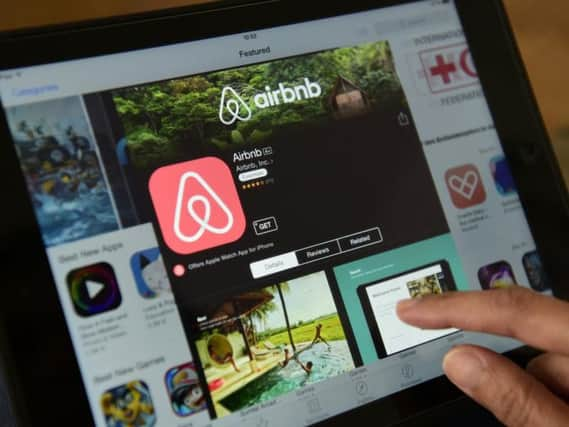Half of users of sharing economy businesses have faced problems, report says


The report, from the European Commission, said that 55 per cent of people had experienced an issue with a service over the past year. It found that almost half of the people who had experienced problems did not take any action, either because they felt it was not worth the effort or because the amount they had paid for the service was small enough that it was not worth pursuing.
The researchers said that consumers see coming across problems as “part of the game” of the sector, in exchange for the opportunity to save money, and because most transactions are relatively low value.
Advertisement
Hide AdAdvertisement
Hide AdThe so-called "sharing economy" has rocketed in popularity in recent years, expanding from accommodation and lift sharing organisations to websites which link people who have a spare portion of dinner left over with neighbours who do not want to cook.
It also extends to selling sites such as eBay and Gumtree, which facilitate matching users who have something to buy with those with something to sell.
Researchers said: “Most active users are either satisfied or very satisfied with their experience. But peer consumers also report frequent problems: 55 per cent had at least one problem over the past year, mostly related to the poor quality of goods or services, or to the goods and services not being as described.
“Almost half of the peer consumers that had experienced a problem did not take any action, mostly because they felt it was not worth their time or effort and/or because the amount of money involved was too small.”
The report pointed out that under European law, consumer rights apply only to services the platform offers to peers - while only civil law rules apply to rentals and “sales on platforms between two private persons” - such as eBay, or Gumtree, where sales agreements are made between customers as opposed to with the company, such as AirBnB.
It added: “Unclarity on certain platforms (AirBnB, Uber) about whether peer providers act as a private person or as a business creates confusion about whether consumer rights apply.”
It added that on the larger platforms peers are likely to be confused or misled about who is responsible when something goes wrong: platform’s practices may give the impression they assume at least partial responsibility in case of problems, but their Terms and Conditions exclude any liability.
The study was carried out as part of an ongoing review of core EU consumer and marketing laws.